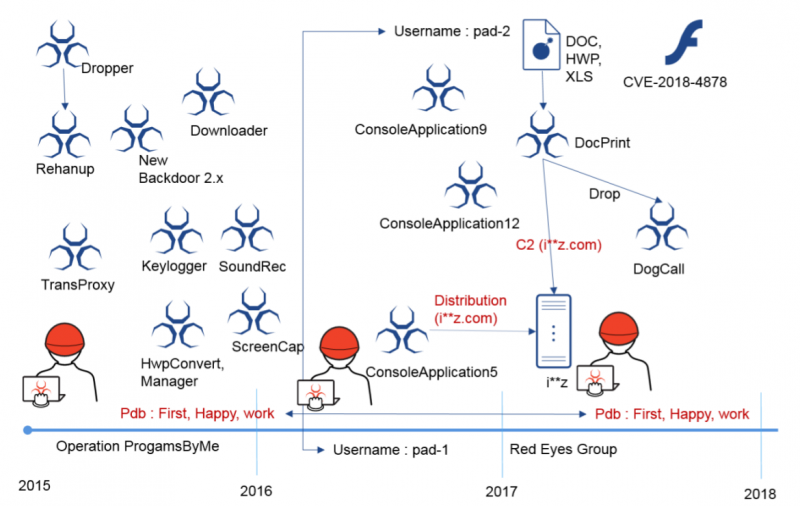AhnLab
has published a research paper that looks at the Red Eyes group, which is particularly active against North Korean defectors, as well as journalists and human rights activists in the North Korean community. The paper (
pdf
) is written by Minseok (Jacky) Cha and was originally published in Korean in April of this year.
Red Eyes is known by various names: in a research paper published in February,
FireEye
called it
APT 37
, while
Cisco Talos
, who first
discovered
the group in March of last year, refers to it as Group 123. The group was also mentioned in a
paper
presented by
Talos
researchers Paul Rascagneres and Warren Mercer at VB2017 last year.
Paul and Warren showed an example of what, according to Minseok, is the most common way this group infects its targets: by sending a malicious
Hangul
word processing file, often exploiting a vulnerability in the handling of EPS objects. However, the group has also exploited the DDE feature, as well as a then
zero-day vulnerability
in
Adobe Flash Player
.
The Red Eyes group has been active since at least September 2016, but its activities have been linked to another attack group, active from at least July 2015. Minseok also points out that strings used in the group’s malware suggests its authors are native speakers of Korean and that they sometimes use a version of the language that sounds more natural to those living in the northern part of the Korean peninsula.

Activities of the Red Eyes group and the likely linked ProgamsByMe [sic] group.
Cyber attacks and threats linked to North Korea will be a
hot topic
at VB2018, with several papers papers dealing explicitly or implicitly with threats that have been attributed to North Korean actors. Minseok himself will present a
paper
on lesser-known activities by the Lazarus Group. For those interested in the subject, I also recommend reading the blog posts recently published by
Intezer
and
McAfee
that look into code reuse among various groups linked to North Korea.
Registration
for VB2018 is open now, and for hot security research, the
call for last-minute papers
also remains open until 2 September.
Make sure to join us in Montreal to learn about and discuss the most important threats facing the Internet today!
Leave a Reply